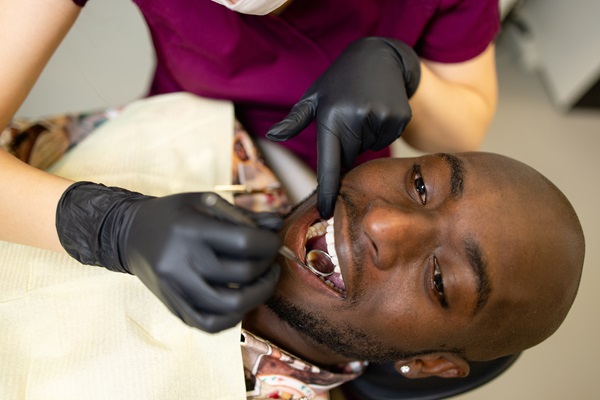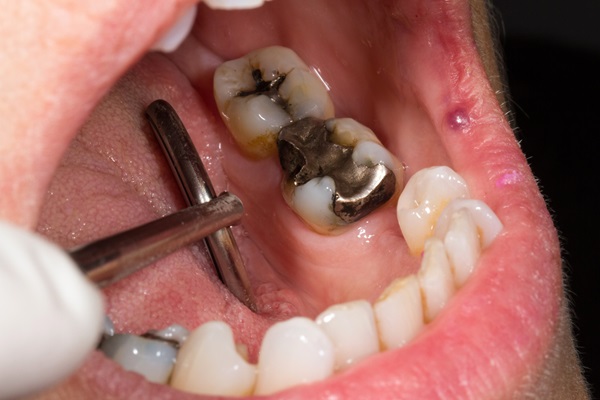A Dental Crown Overview: What You Need To Know

Think you may need a dental crown? Read on to learn more about this dental restoration. Teeth are the strongest part of our bodies; however, they are also easily harmed by day-to-day activities like drinking and eating. When teeth are damaged or decayed, dental crowns serve as caps or covers to restore their shape, strength, size, and appearance. If properly maintained, dental crowns can last between five to 15 years or even more. They are essentially a long-term investment in your dental health and function.
When is a dental crown needed?
Dental crowns are custom-fitted coverings that cover the entire visible portion of a tooth above the gum line. They are used mainly to restore severely damaged and decayed teeth. Sometimes, a dentist might recommend them for aesthetic reasons to brighten and misshapen teeth. Crowns could be made from several materials like porcelain, ceramic, composite resin, or metal, each with differing longevity, looks, and price advantages.
Some of the conditions where a dental crown might be necessary include:
- To protect a weak tooth from breaking or to hold a cracked tooth
- To restore a broken or worn-down tooth
- To cover and support a tooth with a large filling
- To hold a dental bridge in place
- To cover a dental implant
- To improve smile aesthetics
Getting a dental crown
First, the dentist will examine the extent of damage and the suitability for a crown. This might include taking dental X-rays of the roots of the tooth and adjacent bone. Next, the dentist will reshape the tooth to accommodate the crown. This process requires removing part of the outer layer of the tooth to fit the crown.
They will take an impression of the tooth to model the crown after reshaping. The impressions of the teeth above or below the receiving tooth are also made to ensure a well-aligned bite. The dentist will then fit a temporary crown over the reshaped tooth while the permanent crown is in production. This temporary crown is made of acrylic-based materials and secured with temporary adhesive.
When the final crown is ready, patients will return for a follow-up visit. After removing the temporary crown, the dentist will place the new crown over the tooth to check the fit. The dentist may make minor adjustments to ensure the crown matches the surrounding teeth.
When the fit is satisfactory, the crown is cemented onto the tooth, covering the visible portion above the gum line.
Caring for dental crowns
Proper maintenance extends the life of a dental crown. This includes good oral hygiene, avoiding hard foods and teeth grinding, and regular dental checkups. Although crowns protect the underlying tooth, the gum line is susceptible to decay and disease, so keeping the gum healthy is important.
Final note
Modern advancements in dental technology, including digital impressions, computer-aided design (CAD), and computer-aided manufacturing (CAM) are making the creation and fitting of dental crowns quicker, easier, and less invasive for patients. Dental crowns are a key element in restorative dentistry, providing both functionality and aesthetics that can improve a patient’s quality of life. If you have a damaged tooth that requires a dental crown, consider booking an appointment today for a consultation.
Request an appointment here: https://babylonsmiles.com or call Edward Zeva D.M.D. at (631) 773-1094 for an appointment in our Babylon office.
Check out what others are saying about our dental services on Yelp: Dental Crown in Babylon, NY.
Recent Posts
Dental crowns are used in general dentistry very frequently as they are quite versatile. They can solve a number of problems ranging from a simple chip to a severe break. When considering dental restorations, it is worth looking into dental crowns. Outside of being versatile, they are offered in different materials, which can be helpful…
Metal free crowns offer significant advantages over traditional metal crowns. Metal has long been the standard material used for crowns in dentistry for quite some time. It has provided an effective and efficient method for protecting damaged teeth while preserving a patient’s ability to chew. However, as technology continues to advance, metal-free crowns are now…
A broken tooth can be a very painful thing, but with the increasing availability of same day crowns, it may be possible to save one. If the tooth deeply infected and could affect the jaw or gums, it may require extraction or a root canal. However, if decay has not eaten into the pith or…
Have you finally decided to get the beautiful smile you have always wanted through teeth restoration? If so, then you are probably torn between veneers and crowns to attain your dream smile. The process of getting a smile makeover often entails choosing between dental crowns or veneers for the best results.The two options are standard…


